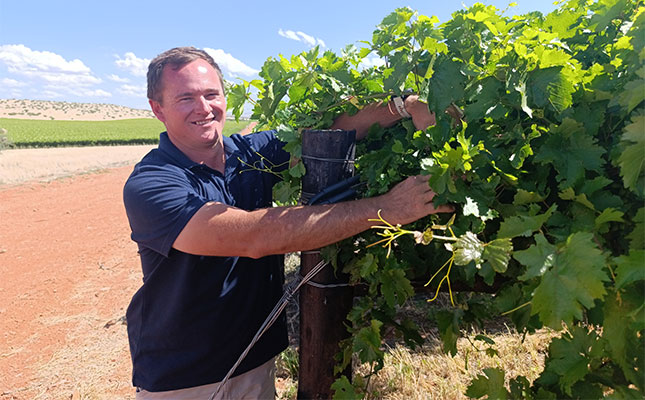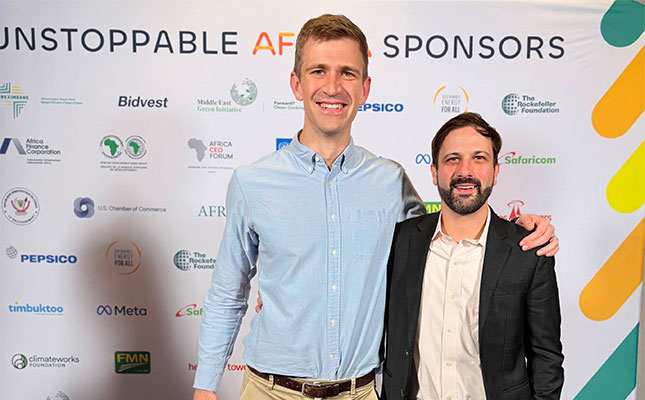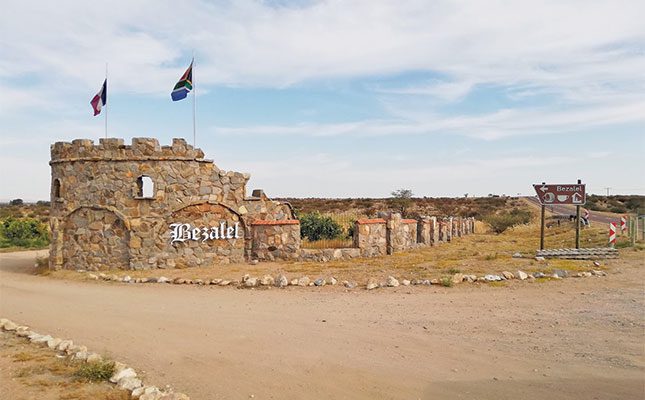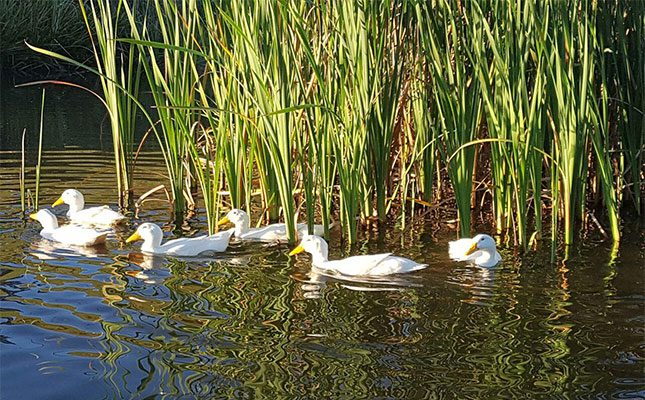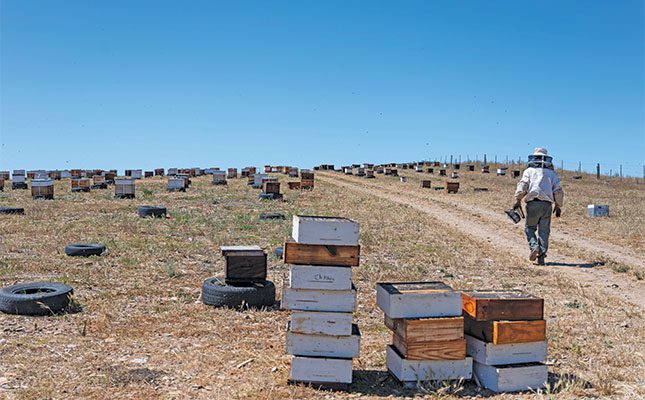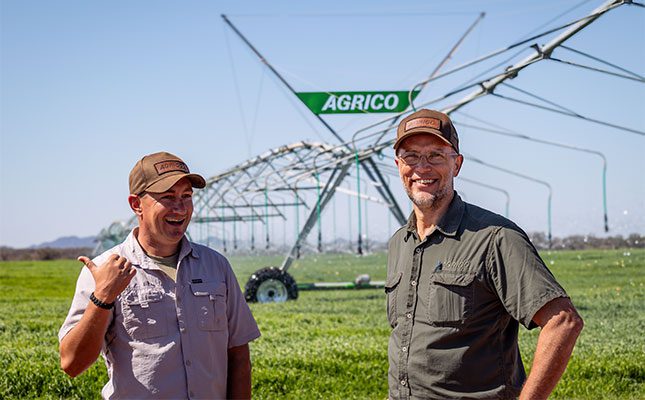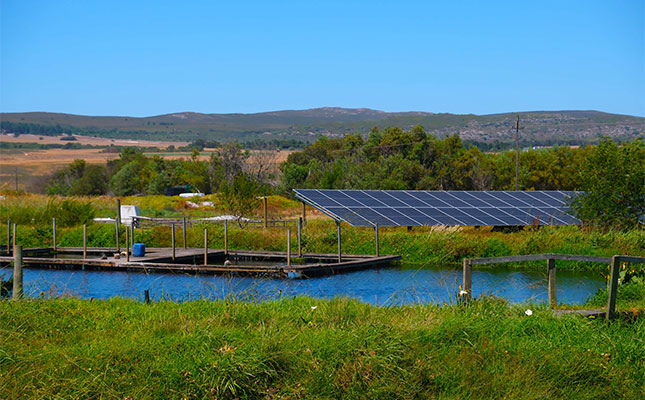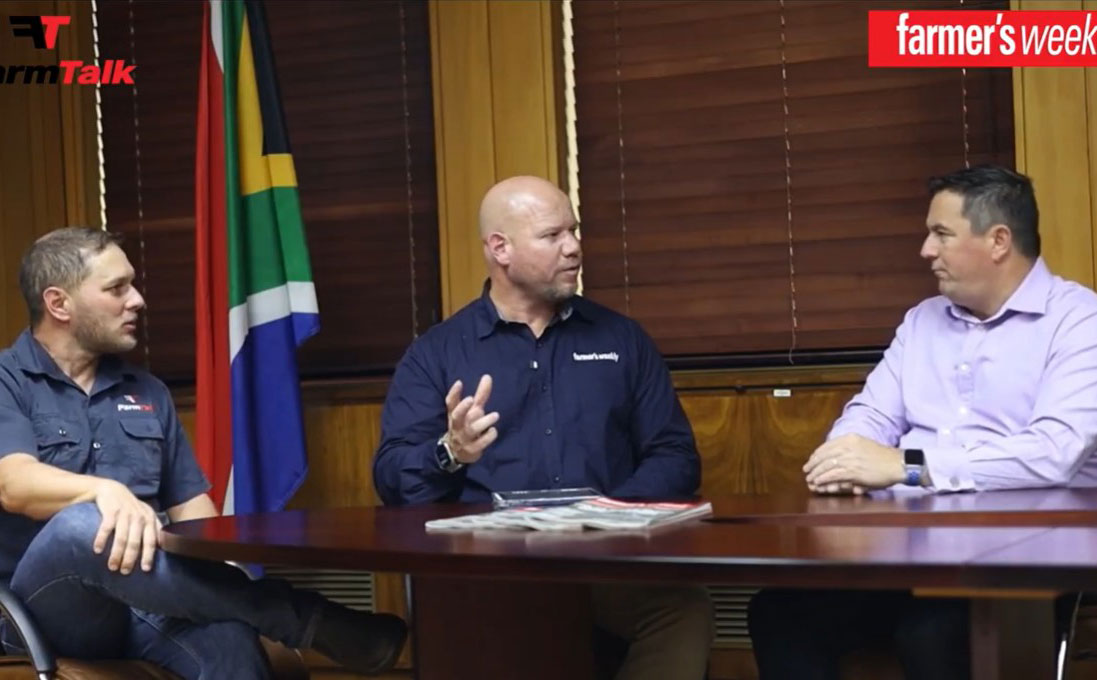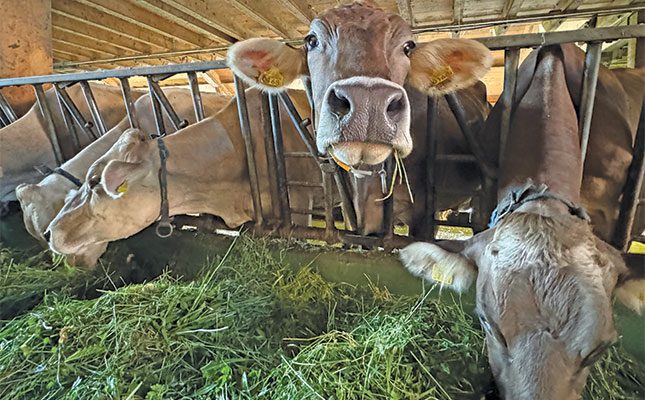
In a country with about 48 000 farmers, where most of the farmers in the various regions produce and focus on the same product, it is imperative for farmers to distinguish themselves in a highly competitive market while meeting strict prescriptions regarding biodiversity, animal welfare and traceability.
The farms visited by journalists attending the International Federation of Agricultural Journalists world congress do exactly that: they provide services or products that are unique in their offering.
Massaging cows
At Blindenau, the farm of Sepp Dähler, not far from the village of Appenzell, something unique is practised: cows are massaged. His Kabier cattle are fed with the finest products and are regularly massaged.
Grain production is not common in the Appenzell Valley, but the Dähler family has been growing wheat for the Locher brewery in Appenzell since 1996. The owner of the brewery, Karl Locher, provides them with beer by-products that are used in livestock feeding as well as for massaging purposes.
The cows and pigs on the farm are fed with three by-products from the brewery: brewer’s grains (the malt residue after the mash has been refined), a beer starter (a mixture of water and beer), and brewer’s yeast (from the sediment of the storage tanks).
They are also fed malt husks, a mixture of grains, vegetable charcoal, and hay that is rich in structure.
According to Dähler, cattle like bitter foods such as brewer’s yeast and spent grains.
“These are not only a treat for them but also good for their health as it provides numerous proteins, important vitamins and minerals.”
Although the feed ration is slightly alcoholic, the micro-organisms in the cattle’s rumen break it down, rendering a blood alcohol content of 0%.
The Kabier herd comprises 50 cattle of which 30 are kept on the farm and the other 20 on pastures on a partner farm. Dähler says he only keeps cows as the meat is more tender. He also does not breed but buys in heifers from local auctions.
The massages are done twice a day with a hand brush: in the morning with beer and yeast, and in the evening with Swiss canola oil.
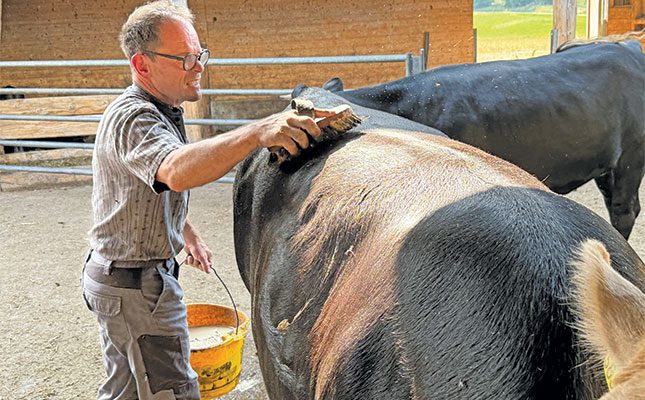
“The massage not only contributes to the well-being of the animals, but also supports optimal coat care and protection against parasites. In addition, the animals are very calm and stress free,” Dähler explains.
The cattle are kept in groups in the free-range barn and enjoy full freedom of movement at all times. They have a lounging room with deep litter, an open-air running yard, can exercise on the meadow and have a feeding area at their disposal.
The animals are slaughtered on the farm at around 18 months at about 600kg by a specialised butcher. The weight after slaughtering is between 300kg and 400kg.
“This was not always possible, but due to policy changes we are now allowed to kill and slaughter the animals on the farm. In this way the animals produce fewer stress hormones and this shows in the quality of the meat.”
The farm slaughters between 35 and 40 animals annually. “Every three weeks we will slaughter two animals, and perhaps during the Christmas period, depending on availability, we will slaughter more.”
The Kabier meat is matured for about five weeks, after which it is directly marketed to private individuals and gourmet restaurants. Dähler follows a nose-to-tail approach to ensure the entire animal is utilised.
“Because cattle do not only consist of fillet, rump and entrecôte alone, the Kabier meat is sold in mixed packages of 5kg or more, corresponding to the composition of the animal’s carcass,” he says.
The meat is sold for almost double the normal beef prices in Switzerland.
The fur and leather are of particularly high quality due to the daily massage process. The hides are tanned using vegetable products and processed by local artisans.
The Dähler family then market and sell the various leather products, such as handbags, belts and purses, as well as other products such as lamps and jewellery made from the horns and soap, and ointments made from beef fat directly from the farm.
“Kabier beef frying fat can also be ordered from us,” he says.
They also keep wool pigs, which live in the open field during autumn and roam on the meadows in summer.
“Due to the freedom of movement and the raw fibre-rich feeding with brewer’s grains, the animals grow more slowly. This gives the meat a unique quality.”
Dähler explains that the pigs play a central role in the entire Kabier production cycle: “In autumn, after harvest, the pigs eat harvest residue on the field and fertilise the soil with the best manure possible.
In spring and autumn, the manure collected from our animals in the barns is spread on the fields. This ensures humus build-up in the soil. These practices lay the foundation for a successful wheat harvest the following season.
“It is important for us to keep and care for our animals in a species-appropriate manner, but also to generate sustainable production. We close the production cycle. A holistic utilisation of the entire animal is imperative to us.”
The downstream value chain
On-farm experiences are another way of ensuring profitability. Four experienced farms co-operating under the Jucker Farm brand each have their own character with different offerings to the public.
In Jona Rapperswil, on the upper shores of Lake Zürich, is the Bächlihof adventure farm. It belongs to the Bächli family and offers a huge farm shop, processing facility, restaurant and rustic-modern event rooms that are open 365 days a year.
Bächlihof Jona attracts tens of thousands of visitors yearly. Depending on the season, there are straw or pumpkin figures to admire, and children can play under the watchful eye of their parents on a natural playground, storm a castle made of straw bales, or feed the goats in the petting zoo.
Martin and Beat Jucker grew up on the farm originally bought by their great-grandfather. Initially they only produced apples, but in the mid-1990s they decided to venture into vegetables.
They planted pumpkins in the spring, and before the first frost were taken by surprise by an excellent pumpkin harvest. This was the beginning of the annual pumpkin show.
Fruit and vegetable production still forms the heart of the business, and most of what is grown on the farm is sold directly in the farm shop. They still have 6 000 fruit trees on the 4ha farm and produce 24 apple and 12 pear varieties. They also grow blueberries.
Fresh and seasonal farm produce such as fruit, vegetables, wine, pumpkin seed oil, pickled vegetables, jams, pumpkin seeds, bread, and pumpkin beer can be bought at the farm shop or ordered online. The products they cannot produce themselves are sourced from nearby farmers.
Bächlihof is also the home of the farm factory HofManufaktur, where soups, pasta, hummus, oat drinks and other products are processed from locally grown fruit and vegetables. Bread is baked daily in the farm bakery with flour milled from the grain produced on one of the family’s other farms.
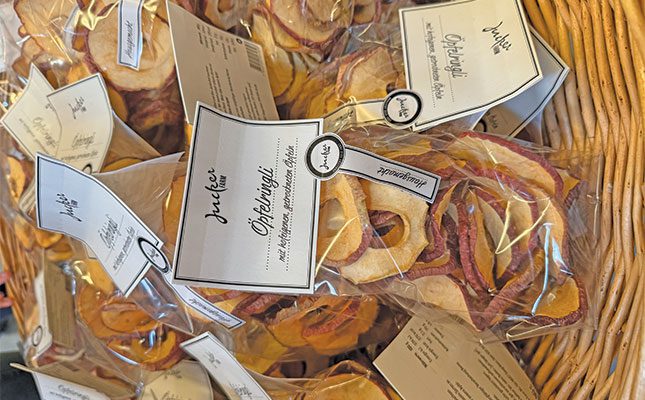
At the restaurant, seasonal dishes such as pumpkin soup as well as pasta, pies, fresh salads, ice cream, and coffee can be ordered.
There are regular events. Particularly popular is the pumpkin exhibition with breathtaking pumpkin sculptures. The farm offers activities such as baking, ice-carving and scarecrow-making.
They also host a ‘farmer’s tournament’ that includes activities such as tractor-driving, wood-sawing, horseshoe-throwing, archery, flag-throwing, traditional wrestling and even a yodelling contest. Other events include conferences, weddings and parties.
According to the farm manager of 18 years, David Prevost, the idea is to provide products directly from the field to the plate. They do not throw away surplus products.
“If we have a surplus of any product, we have a team that looks at processing. Then we experiment until we find a novel product that we can sell to our customers. We start small and if it works, we will reinvest and grow bigger,” he says.
Although Bächlihof is not an organic farm, they focus on regenerative agricultural practices and go beyond the Bio Suisse guidelines on production, processing and trade.
“We make compost tea that we use in the fields. We try to avoid pesticides and chemical fertilisers as far as possible and are moving towards cultivating disease-tolerant and resistant varieties,” says Prevost.
Chickens are moved around on the farm to enable better pest control and fertilise the fields.
Kunekune pigs are also part of the farming operation. According to Prevost, the breed is social, friendly, docile, and easy to handle.
“This breed prefer grazing on grass instead of rooting up the earth. They are adapted for grazing with a short snout, unlike other breeds. Because they do not require a great deal of supplementary grains, they are very cost-effective to keep. In addition, they can be kept with chickens, ducks, goats, cats, and dogs.”
The farm uses social media for marketing, sends a newsletter and invites the media and food influencers on to the premises. Prevost says they also rely a great deal on word of mouth.
“If your customers are satisfied with what you offer, they will spread the word.”
With about 280 000 visitors a year and some 10 000 people attending the various festivals, this is an excellent model for directly selling farm produce, bringing farming closer to the consumer.
Directly from the farm
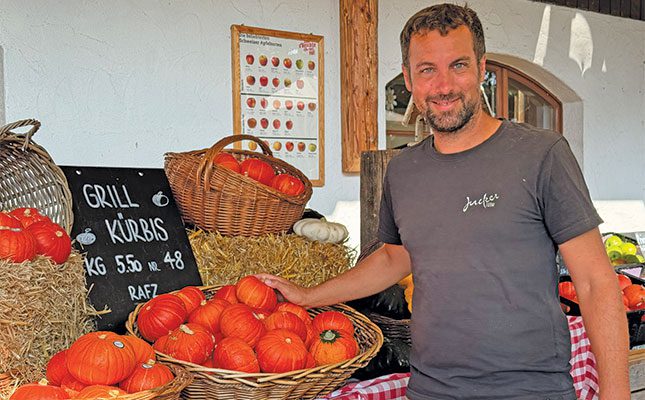
Swiss farmers are increasingly exploring ways to increase profit. According to Switzerland’s Federal Statistical Office, the on-farm sale of meat is going up: between 2010 and 2016 there was an increase of 60% in farmers reporting selling their own products directly to the consumer.
The 20ha farm Adelbachhof belonging to Köbi and Leandra Hagmann lies between Toggenburg and Appenzellerland in the Neckertal Valley.
The Hagmanns rely on direct marketing to sell their produce and have implemented a novel idea: they keep between five and 15 free-range pigs, but also have a barn where the pigs can rest during the day or stay during adverse weather conditions.
With cameras fixed on the farm, a live stream is fed onto social media where people can constantly watch the pigs.
“We wanted to bring our customers closer to the animals. With the cameras showing the free-range enclosures, this is possible,” Köbi explains.
At first they attached a camera to one of the pigs but as it constantly needed repairs, they decided to stream only with fixed cameras.
Köbi built a unique barn for the pigs: it has a glass ceiling so visitors can see in. They can also sit down and have a cup of coffee while watching the animals. Two large, easy-to-open windows are mounted to the barn wall so the animals can be watched sleeping, playing or wrestling.
“In the beginning, the pigs were curious about the visitors, but as time went by they got accustomed to being watched and no longer care much about people,” he says.
They keep 23 Braunvieh cows, which produce about 50t of milk a year. The cattle are not given any concentrated feed and only graze on the meadow. In winter, they are given hay.
The Hagmanns do not conduct breeding, but mostly buy cows in the first or second lactation. When doing this, they particularly pay attention to udder health and good legs.
They also keep a Charolais bull on pasture, with the calves being sold to a neighbouring farm at three weeks.
Since 2018 they have processed all the milk on the farm. When they have access it is delivered to the nearby Güntensperger cheese dairy. In their own dairy they produce lactose-free yoghurt, yoghurt quark and Birchermüesli. As far as possible they use fruit and berries grown in their region.
Birchermüesli is a Swiss speciality product comprising yoghurt with apples, raspberries, blackberries, strawberries or redcurrants, oat flakes and sugar.
They further add value by selling the products on farm or delivering from online orders. Visitors from the area often walk to the farm to watch the camera pigs and buy dairy products and meat from the Hagmanns. Bakeries, retail stores, retirement homes and restaurants are also among their customers.
The Hagmanns produce under the IP Suisse certification guidelines that set strict quality standards and ensure each product can be traced back to its origin.
Email Sepp Dähler at [email protected] or Bächlihof at [email protected]. Watch the live video feed from Adelbachhof at kamerasau.ch.
Get trusted farming news from Farmers Weekly in Google Top Stories.
➕ Add Farmers Weekly to Google ✔ Takes 10 seconds · ✔ Remove anytime
